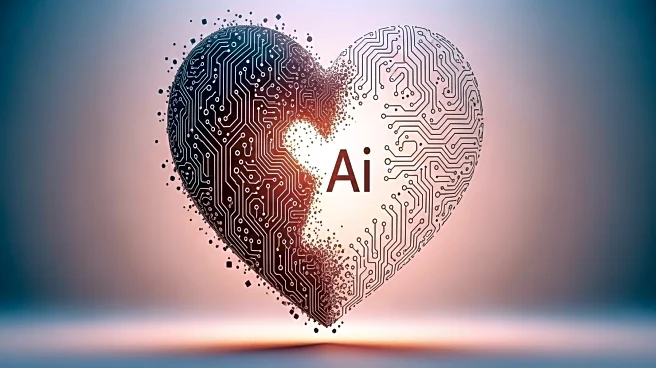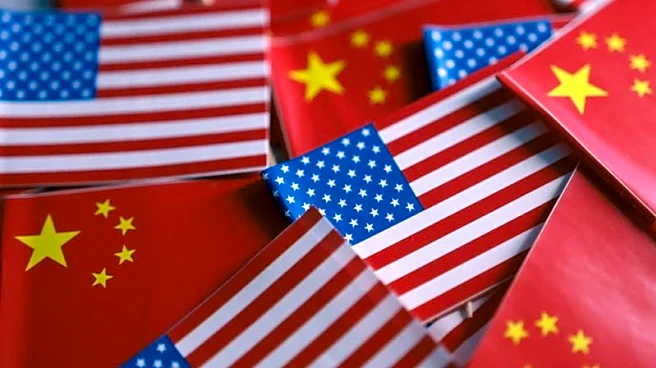What's Happening?
AI-powered tools like ChatGPT are increasingly being used by individuals for dating and relationship advice. These tools offer guidance on crafting breakup messages, dissecting conversations, and resolving relationship issues. According to research by Match, nearly half of Generation Z Americans have used AI for dating advice, more than any other generation. While AI can help users process confusing messages or offer a second opinion, experts warn that AI responses can be emotionally sterile and may reinforce dysfunctional patterns. Privacy concerns also arise, as these apps could collect sensitive data that might be exposed by hackers.
Why It's Important?
The integration of AI into personal relationships highlights a shift in how individuals seek advice and manage emotional interactions. This trend could impact the traditional role of human counselors and therapists, as AI tools offer immediate, albeit less nuanced, support. The reliance on AI for emotional guidance may lead to a decrease in personal introspection and emotional development, as users might outsource their intuition and relational self. Additionally, privacy risks associated with AI tools could lead to significant data breaches, affecting users' personal lives and trust in digital platforms.
What's Next?
As AI tools continue to evolve, developers are working to improve their models to avoid unhealthy emotional reliance and ensure appropriate responses. Companies like OpenAI are implementing safeguards to direct users to professional help when necessary. The future may see increased collaboration between AI developers and mental health professionals to enhance the safety and effectiveness of AI-driven relationship advice. Users and developers alike must navigate the balance between technological convenience and emotional authenticity.
Beyond the Headlines
The use of AI in personal relationships raises ethical questions about the role of technology in human interactions. As AI tools become more prevalent, society must consider the implications of emotional outsourcing and the potential loss of genuine human connection. The cultural shift towards digital advice may redefine norms around privacy, emotional intelligence, and interpersonal communication.










